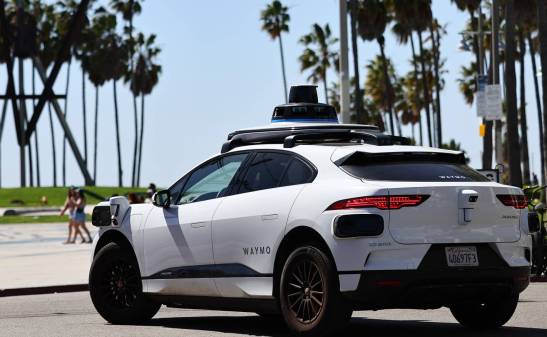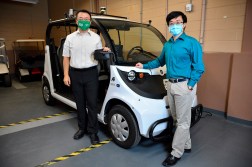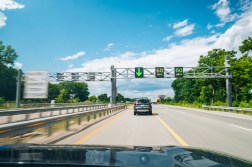Self-driving vehicles: Nevada and Texas join growing pool of states to pass laws

Nevada and Texas governors each signed bills addressing self-driving vehicles this month, joining 16 other states and Washington D.C. in the quest to regulate and capitalize on a rapidly advancing technology.
Nevada Gov. Brian Sandoval signed AB 69 on June 16, allowing self-driving vehicles to navigate with people inside, but not requiring that they sit behind the wheel. Nevada became the first state to legalize self-driving vehicles in 2011, maintaining that a driver behind the wheel was necessary in case anything went wrong. Automakers and software companies offered support for the bill, which is expected to establish Nevada as a hub for self-driving vehicle research.
“AB 69 is an important step forward for self-driving in Nevada,” said David Strickland, general counsel for the Self-Driving Coalition for Safer Streets. “We applaud Gov. Sandoval and state lawmakers for enacting this crucial legislation, which will update existing statutes to permit the testing and commercial public deployment of fully self-driving vehicles while also supporting innovation and promoting competition.”
Texas Gov. Greg Abbott signed the similar SB 2205 on June 15, allowing the testing of self-driving vehicles on state roads with a requirement that passengers be inside, but not necessarily in the driver’s seat. Texas, however, had no laws on self-driving technology before the recent bill, a glaring hole in legislation that represents a situation many states will find themselves in within the next decade. While the current bill rules that a passenger-occupied self-driving vehicle must abide by all insurance and traffic laws currently in place, the future of personless transport is still in question.
Arizona, Massachusetts, Washington and Wisconsin Governors have also passed executive orders concerning the use of self-driving vehicles on state roadways, and further legislation surrounding self-driving vehicles is expected to increase in volume and scope in the future.
An Intel study recently concluded that self-driving vehicles would become a $7 trillion dollar industry by 2050 — more than a third of the national gross domestic product today. Traditional automakers are joined by a host of foreign and domestic tech leaders and startups, such as Google, Nvidia, Uber, Samsung, all of which are developing critical software for the emerging technology.
But there is disagreement within the industry on when fully autonomous vehicles will be commercially available. Intel’s prediction of a “passenger economy” shift within the next 35 years places enormous pressure on automakers to develop not just fully autonomous commuter vehicles, which is the current focus, but also vehicles capable of replacing entire brick-and-mortar industries.
“Companies should start thinking about their autonomous strategy now,” said Intel CEO Brian Krzanich in a statement paired with the study. “Less than a decade ago, no one was talking about the potential of a soon-to-emerge app or sharing economy, because no one saw it coming. This is why we started the conversation around the Passenger Economy early, to wake people up to the opportunity streams that will emerge when cars become the most powerful mobile data generating devices we use and people swap driving for riding.”
Intel predicts more than 250 million hours of commuter time will be freed by 2050 within the most crowded cities in the world, raising questions about the functionality and purposes that fully autonomous vehicles could serve in the future. The Intel study proposed a mobile economy no longer reliant on 1:1 vehicle ownership, but a rush of service-based applications and specialized vehicles catering to consumer needs. Examples of such specializations were mobile hotels, salons, restaurants and healthcare clinics.
The legal ramifications of such a societal shift could be overwhelming, which is why the private sector is imploring both state and federal lawmakers to act quickly. The longer a state goes without action relating to self-driving vehicles, the further it positions itself from reaping the rewards of the wave of innovation inevitably cresting in the foreseeable future.






